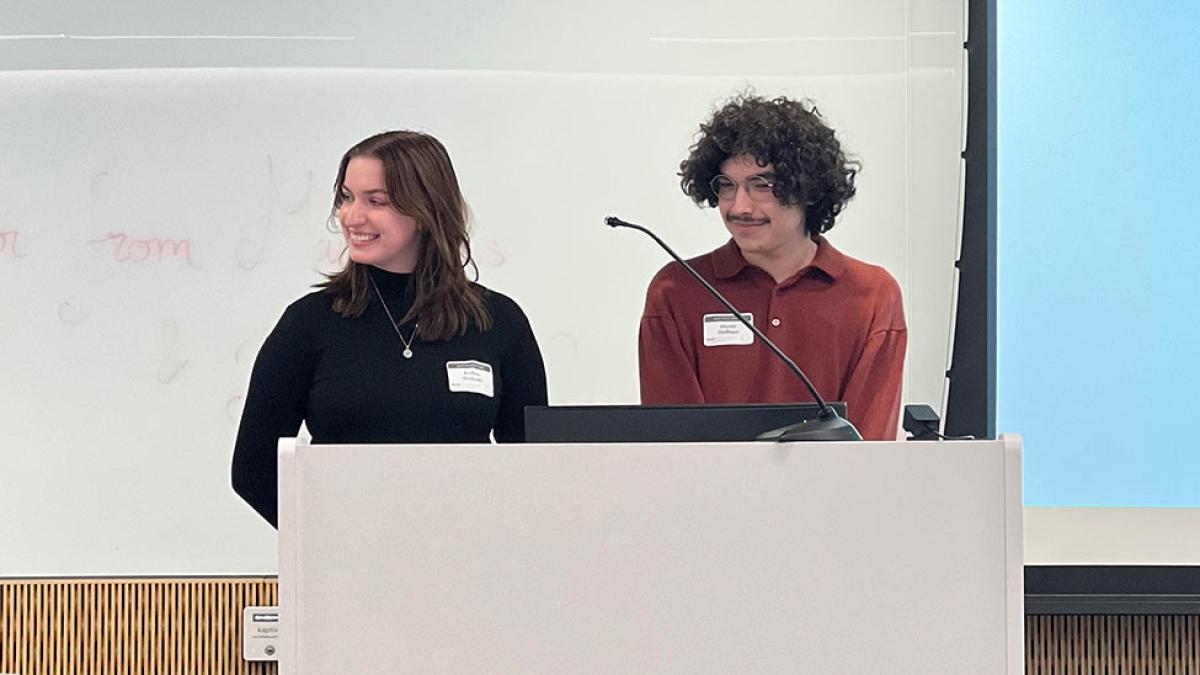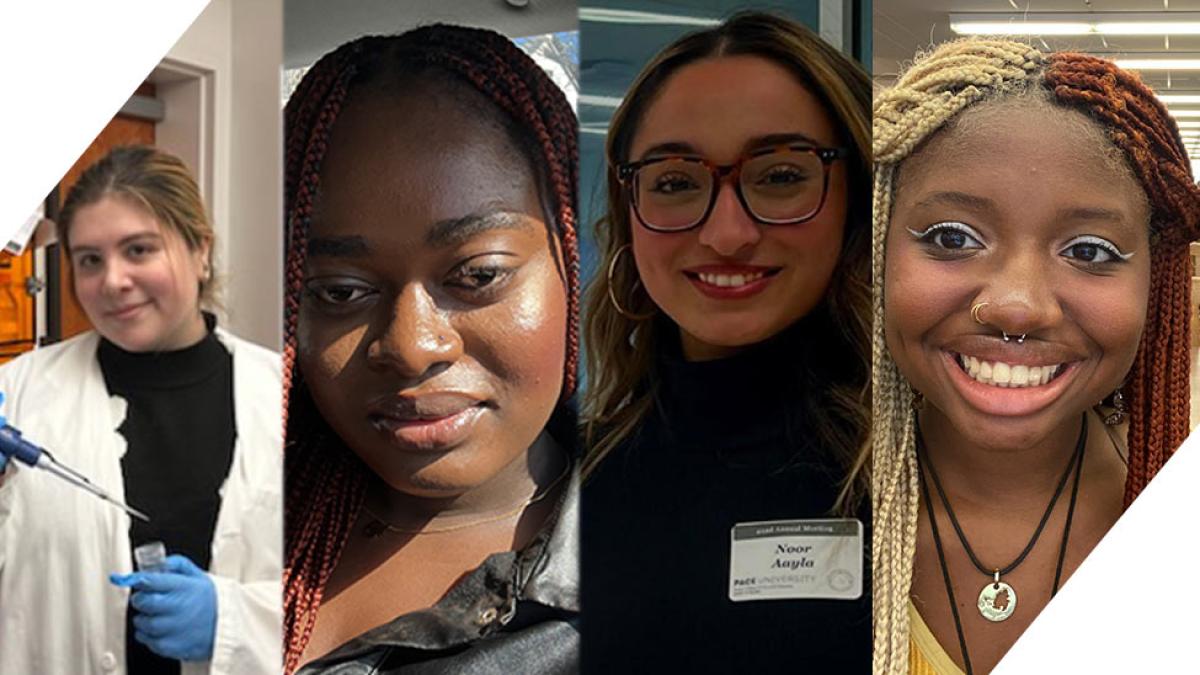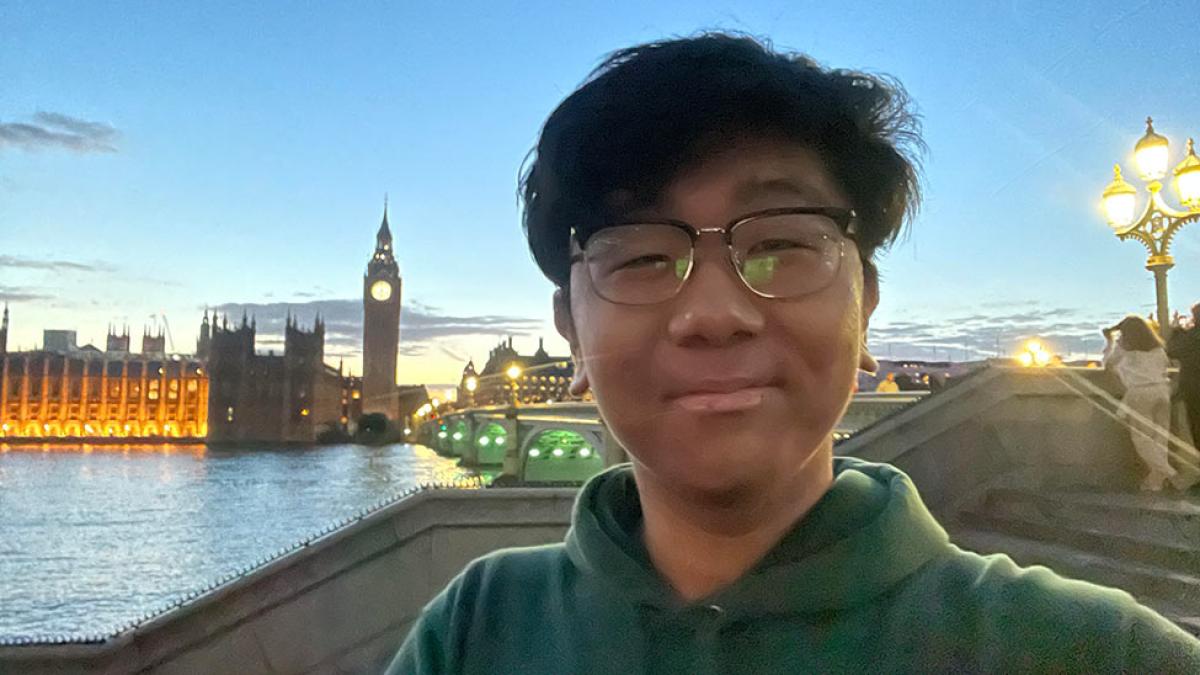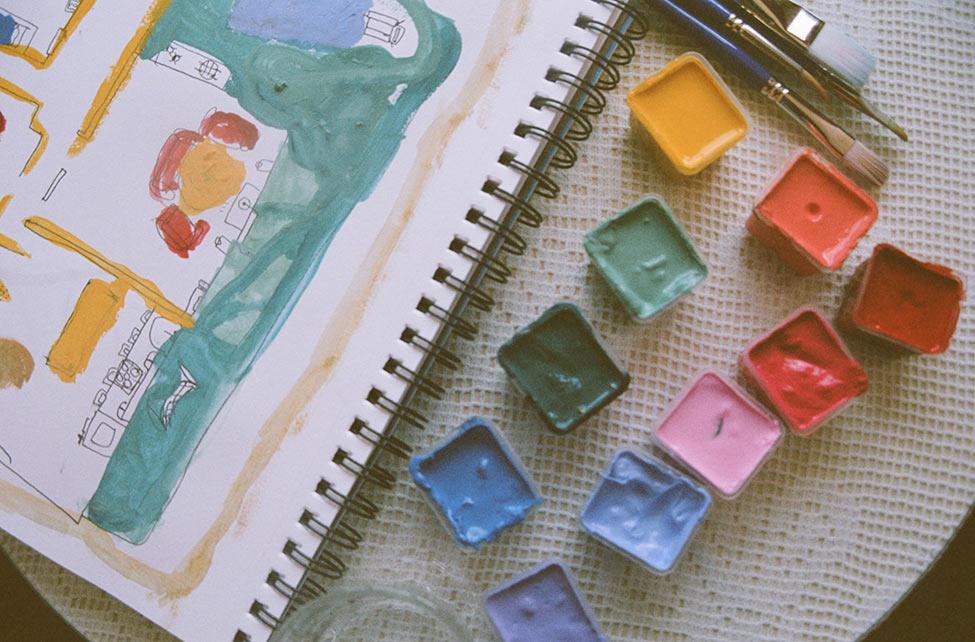
Q & A with Veronika Orlovska '25

A BA in Film and Screen Studies major, you received a Provost Office Student Faculty Undergraduate Research Initiative Award to visit an Ukrainian refugee camp in Ballyvaughan, a small Irish village of only 220 people. While there, you interviewed the children about their experiences for a film you are producing, which also utilizes their drawings to illustrate their views on the meaning of “home.”
What was your experience like working with the children in the refugee camp?
What impressed me the most about the children was their compassion, resilience, creativity, and honesty. At first, they were very tentative when they met me. As I asked them questions and interacted with them more, they shared their thoughts, ideas, and memories. Their creativity was astonishing, and their paintings expressed everything I needed to know. Each child had such an interesting imagination and such a beautiful way of portraying the places they knew or created in their minds. In addition, each brush stroke was so purposeful and created a series of compelling images that portrayed exactly who they were. One of the young girls I interviewed, Masha, drew a beautiful culmination of her home in Ukraine as well as her home in Ireland. She would ship her paintings to her dad, who was still fighting in Ukraine, and her simple compassion towards me in inviting me to her Irish home is something I will never forget. I left my paint set, brushes, and watercolor paper for her.
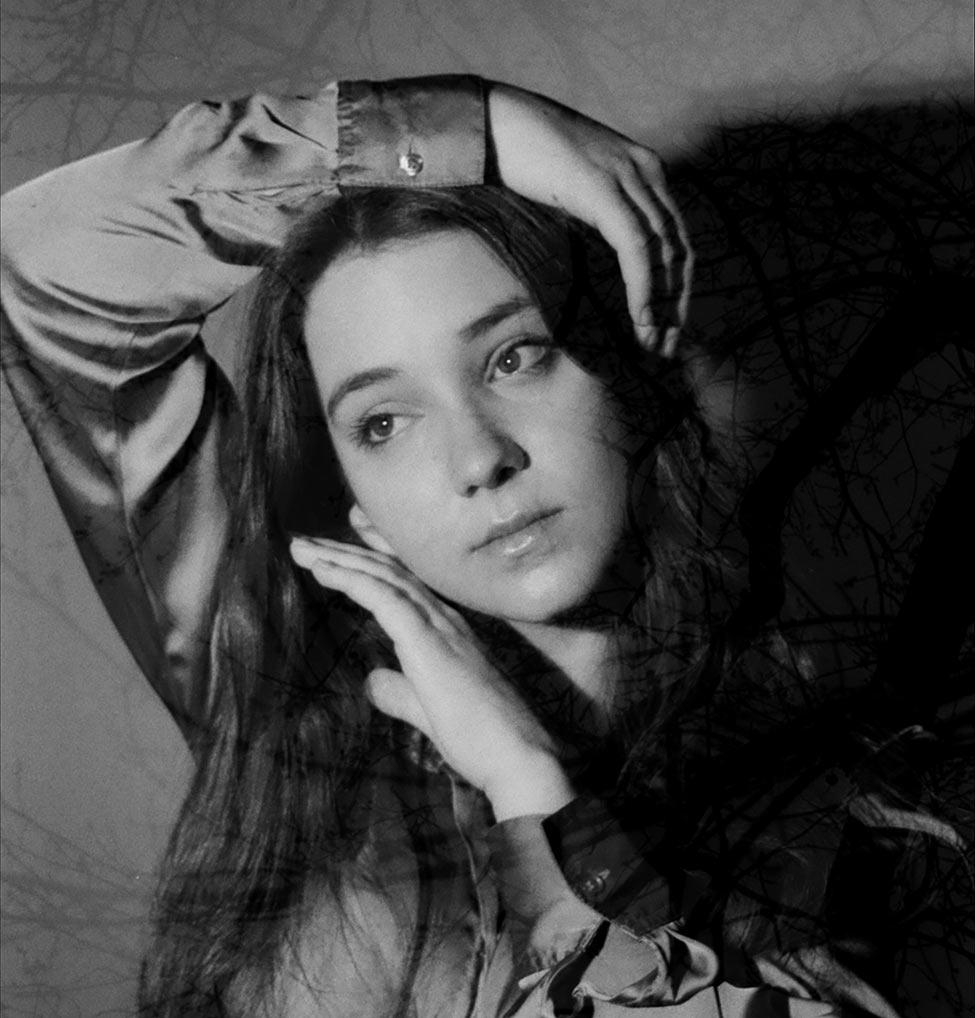
Your interest in this topic is very personal to you, as is this particular camp. Tell us more about that.
I was born and raised mostly in Ukraine, and first came to the US with my mom when I was five years old. I spent half of my childhood between Ukraine and California, attending school in the US and spending summers and winters in Ukraine with the rest of my family. I remember how confused I felt moving to a place I didn’t know and not understanding the language. My family that lived in Ukraine are now refugees currently living at the refugee camp in Ireland that I visited. I learned through them about the children living there and immediately saw a part of myself in them. Many were from the city I grew up in, and all were experiencing the displacement and lack of understanding that I once had experienced. Their displacement, however, is on an entirely different level, as they have no hope of returning to their homes in the foreseeable future.
How was your knowledge of Russian and English instrumental in your role and ultimate goal?
The town has only one school which the Ukrainian children were attending by the time I arrived, a very small one with only four classrooms. During the interviews, the Ukrainian children expressed to me how they found it difficult to not only understand what was being taught in their classes, but also the rules of classroom conduct, which were entirely different in Ireland. My knowledge of both languages at the very least enabled me to translate these and other experiences for them. In the beginning of the war, the media was so saturated with the technical aspects of the conflict: how many bombs were dropped, which cities were targeted, and how many refugees are fleeing to each country. This was extremely frustrating, and the goal of my project was to give Ukrainian children a platform and opportunity to share their memories and experiences with the world. I hope to continue giving them an opportunity to share their stories and to augment their voices for everyone to hear.
What challenges did you face in filming and how did this experience change you as a filmmaker?
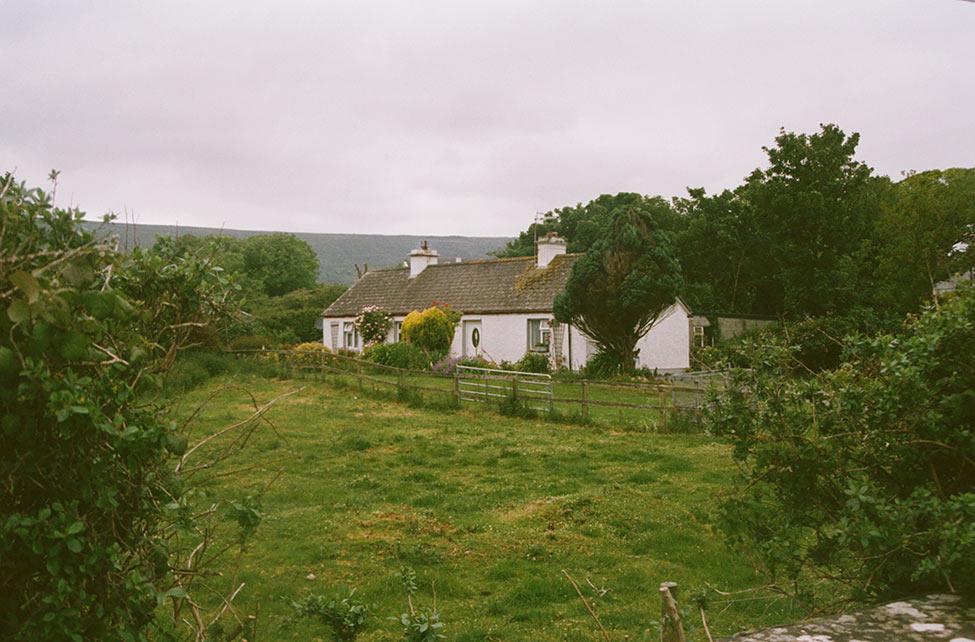
When I arrived in Ireland, I had to run camera, lighting, and sound simultaneously while conducting interviews, something immensely difficult from a technical perspective. I also pulled all-nighters with the composer of the film score, as we were on a time crunch. Editing 400 hours of film and hundreds of times over was also extremely difficult emotionally, as was seeing my family at the refugee camp and being heartbroken about how this experience has affected them. In addition, I struggled with obtaining currency in the rural areas, as well as finding food due to the nearest convenience store being miles away and not having a car.
Needless to say, every stage of the creation of this film was a challenge, but I am so proud of the result and believe that it was all more than worth it. This film has also definitely made me a better filmmaker. I learned how to properly pace myself when working on projects as well as how to engage in ethical filmmaking, especially with regards to the creation of documentaries.
What was it like working with your Dyson faculty mentor and other faculty on this project?
My experience working with Professor McDonald has been great! She is a very encouraging mentor who gave me the freedom to pursue my work in the way I wanted to while offering both support and critical feedback. I have also had incredible experiences with many of the faculty members that are part of the Film and Screen Studies Department. Each of them has been so helpful and consistently send me information to help me with the work I am doing, as well as share opportunities that I might be interested in. Jillian McDonald, Viktoria Paranyuk, Gloria Vela, and Luke Cantarella are all faculty that have greatly helped me in my journey with this film.
How did your coursework prepare you for this project?
The classes that best prepared me for this project were my video art classes with Professors McDonald and Michael Lantz, as well as those with Professor Andriy Danylenko that pertain to my minor in Russian Translation. My video art classes helped me discover and establish a visual style that I carry throughout my work and new ways to present my imagery utilizing different visual techniques and mediums. Without my coursework in Russian Translation, I would have been unequipped and highly inexperienced in translating for film and subtitling. One of the things that I appreciate most about Professor Danylenko's courses is the freedom and flexibility that he allows his students to work on translation within their fields of interest. This gave me the necessary exposure to translation in film that made the process of translating the subject's testimonies much easier.
The goal of my project was to give Ukrainian children a platform and opportunity to share their memories and experiences with the world.
Where are you in the process of creating the film? When and how will it be shared?
The film is practically complete and will premiere in Professor Viktoria Paranyuk’s Cinema and Migration class this spring. From there, I will be submitting it to a variety of film festivals for a brief festival run and aim to reach out to as many organizations that might be interested in streaming it on their platforms.
Why did you choose to study film at Pace?
I chose to attend Pace because I believe New York has a film scene that is far different from film-centric places such as LA, being far more experimental and passionate, in my opinion. Pace also has a very strong arts program which I believed would greatly supplement my work as a filmmaker.
What would you like to do upon graduation/what are your career goals?
Upon graduation, I would like to continue working as a filmmaker. Whether I am a director or a director of photography, I want to continue making films and contributing to the creative process. I am clearly into documentary filmmaking, but I am also exploring underwater cinematography and that is an area I am currently working towards establishing myself in.
Related Stories
As recipients of a 2022 Dyson Summer Research Award, Dante Dallago ’24, Directing and Peace and Justice Studies, and Kalina Walaski ’24, Acting and Peace and Justice Studies, collaborated on “Happy Holidays,” an investigative theater performance piece exploring the dynamics of the holiday dinner table from the perspective of Gen Z students.
Last winter, Pace University received a Collegiate Science and Technology Entry Program (CSTEP) grant from the New York State Education Department, aimed at providing resources—including scholarships, faculty-student research opportunities, and professional development workshops—to students from underrepresented groups in STEM fields. Four Dyson students describe the impact the program has had on their undergraduate experience and their lofty plans for the future.
Students in Pace University's First-year Experience in London program study British literature from the heart of London, explore world-renowned theaters and museums, and form lifelong bonds to each other and to Pace.
